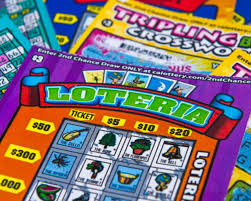- 0
Taxes on Winning the Lottery

A lottery is a form of gambling that involves randomly selecting numbers. Some governments endorse lotteries and others outlaw them completely. Others organize state or national lotteries and regulate their use. If you are a lottery player, here are a few strategies for increasing your odds. If you win, don’t forget to pay taxes on the winnings!
State-run lotteries are a fun, voluntary way to raise state funds
State-run lotteries are a popular way for governments to raise funds. While some people criticize them for not being regulated, they are an important source of tax revenue for state governments. They can also be a fun way for citizens to make their voices heard and participate in government.
While lottery profits vary greatly, the majority of the money goes to state and local governments. For example, the biggest lottery winners pay more than half of their income in taxes. While lottery winners often receive large prizes, lottery profits are used to support programs that help people overcome gambling addiction. In addition, lottery winnings are used to support the state budget and public education.
People with a household income of less than $10,000 a year who play the lottery spend $597 a year on tickets
The lottery is an expensive hobby for people with limited income. According to the U.S. Census Bureau, about half of American adults participate in state lotteries. In 2017, state lotteries sold $71 billion worth of tickets. And while lottery tickets can be expensive, they are not nearly as expensive as other impulse purchases. In fact, people with a household income of less than $10,000 spend an average of $597 a year on lottery tickets.
A recent study by the U.S. Census Bureau shows that lottery players with low incomes spend more money on lottery tickets than households with higher incomes. In fact, low-income households spend nearly double that amount when they buy more than one ticket a year. The lottery is a popular activity among low-income Americans, with a per capita expenditure of $597 on tickets. Researchers have linked lottery tickets to lower educational levels and membership in ethnic minorities.
Strategies to increase lottery odds
While there is no method that guarantees you’ll win the lottery, there are certain strategies that can improve your chances of winning. These strategies include the law of probability, syndicates, and picking less popular lotteries. Each method has its advantages and disadvantages, and you should conduct research before trying any of them.
Taxes on lottery winnings
Taxes on lottery winnings depend on where you live, and each state has its own rules for how much you must pay. If you won the result sgp lottery in New York, for example, you will have to pay about 8.82% of your prize money in taxes. This is on top of the federal withholding rate of 24%. State and local taxes will also vary. Some states do not have any income tax at all, while others have very high tax rates. Also, some states do not have a lottery at all.
You can deduct your state income taxes when filing your federal taxes. However, you should note that the Tax Cuts and Jobs Act has changed the itemized deduction limit to $10,000 for tax years 2018 through 2025, and $5,000 for single filers. While this may seem like a lot, if you are a big winner, it will only be a drop in the bucket.
Social harm of lottery gambling
The extent of social harm associated with lottery gambling is complex and varies between different groups. However, it has been shown to lead to lower social outcomes and greater psychological distress than nongambling individuals. It can also damage self-confidence, social control, and conformity. Although lottery gambling is widely accepted in the general population, the risks of social harm from it are significant. People who are less educated, less financially stable, and those who are disadvantaged are at greater risk of social harm.
In addition to monetary costs, lottery gambling has a variety of social costs, including the costs of addiction, the costs of problem gambling, and long-term costs. Some of these costs can become visible to the society or community, such as when a gambler’s family seeks help, but the majority of them remain unrecognized.